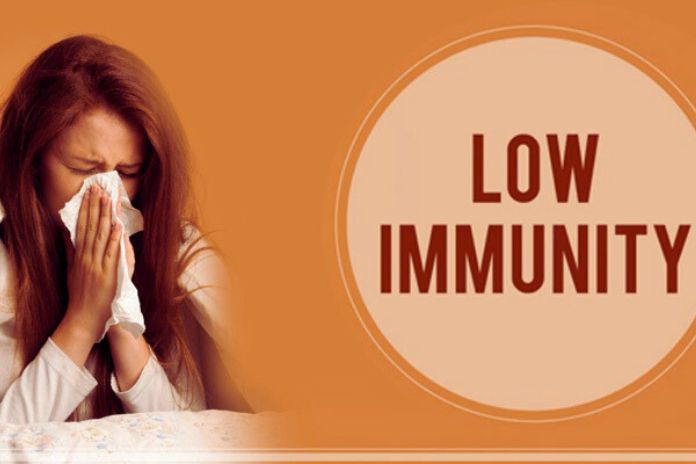Also known as immunodeficiency, low immunity is a condition where the body’s immune system does not function properly, which makes the body more susceptible to disease and infection.
The immune system comprises a set of cells and organs that work together to protect the body. When a microorganism invades our body and causes illness, the immune system is triggered to fight the infectious agent, promoting healing as quickly as possible.
However, when we have low immunity, this does not happen, as the immune system does not produce enough cells or does not produce the correct cells to fight infections, causing a series of health problems.
The weakened immune system cannot adequately protect the body against foreign invaders such as bacteria, viruses, fungi, and parasites. For this reason, people with low immunity may have several health problems, such as:
- recurrent infections;
- severe infections like pneumonia and meningitis;
- increased susceptibility to allergies;
- Higher risk of inflammatory diseases such as arthritis, among others.
What Are The Causes Of Low Immunity?
Throughout life, it is normal to experience low immunity, such as a sudden change in environment, emotional factors, and exposure to a series of stimuli that stress the body. This is entirely normal. However, other conditions can chronically and recurrently compromise immunity.
Thus, many factors can cause low immunity, the most common causes being chronic illnesses such as diabetes, HIV/AIDS, and cancer. These diseases can compromise the immune system, making the body more vulnerable.
Prolonged use of immunosuppressive drugs, such as those used to treat autoimmune diseases and transplants, can also lead to low immunity. Other causes may include:
- people with nutritional deficiencies, such as a lack of vitamins and minerals essential for the proper functioning of the immune system;
- Age as we age, the immune system tends to become less efficient.
Remember that understanding the causes of low immunity is very important so you can take steps to prevent the problem.
How Do I Know I Have Low Immunity?
Low immunity can be challenging to identify; symptoms can vary greatly and be similar to other health issues. However, some warning signs could indicate this condition and should be closely watched by a professional.
One of the main symptoms of low immunity is the increased frequency of infections that a person may have, whether respiratory, skin, or urinary. When an individual has low immunity, the body has more difficulty fighting infectious agents, leading to more frequent and difficult-to-treat infections.
Fatigue, lack of energy, and excessive tiredness are warning signs that must be considered. The body of a person with low immunity is constantly fighting to fight infections and other threats, which can lead to more significant wear and tear, which gives the constant feeling of tiredness.
- presence of wounds and ulcers in the mouth and mucous membranes;
- allergies and inflammatory reactions (coughing, sneezing, itching, redness and swelling);
- weight loss for no apparent reason;
- increase in the number of autoimmune diseases.
These are also other recurring symptoms of low immunity. Therefore, if you present any of these signs, it is essential to seek medical help to perform tests and check for possible health problems related to immunity. It is necessary to find out the reason for the problem as soon as possible to avoid more severe complications.
Increasing Immunity
Keeping a robust immune system is essential to prevent any health problem. However, for this to be possible, knowing how to increase immunity is necessary. Some simple measures can be taken to boost immunity and protect the body against external threats, such as:
Healthy Eating
A balanced diet, composed mainly of natural and unprocessed foods, is essential to maintain good health and strengthen the immune system.
So, opt for fresh foods and avoid industrialized products that could compromise the nutritional quality of your food. That way, you’ll ensure that your body receives the nutrients it needs to boost immunity and keep your health up to date.
Practice Physical Activities
It is not new that it is known how the regular practice of physical exercises can reduce the risk of developing several diseases. In the case of low immunity, physical activities help to strengthen the immune system, increasing the production of antibodies and the movement of cells that help fight diseases and infections.
Reduce Stress
Stress is a significant factor that can cause changes in the human body’s immune responses. When the body is under stress, hormones such as cortisol are released in excess, which can negatively affect immunity.
Furthermore, chronic stress can contribute to autoimmune diseases as the immune system begins to attack the body itself. For this reason, managing stress is essential, which brings us to the previous tips.
It is essential to say that none of the habits listed can cure diseases that affect the immune system; they only contribute to strengthening it.
Consult Regularly With A Professional
Conducting routine consultations with health professionals is essential to ensure health maintenance and disease prevention at any stage of life. The doctor can identify possible health problems during these consultations, such as low immunity.
For example, professionals such as gynecologists and urologists can request routine tests, such as a complete blood count, which can detect possible changes in the immune system. In addition, they can also order tests to check the levels of essential vitamins in the body, such as vitamins D and C.
Also Read: Foods That Boost Immunity: Discover 15 Powerful Options

